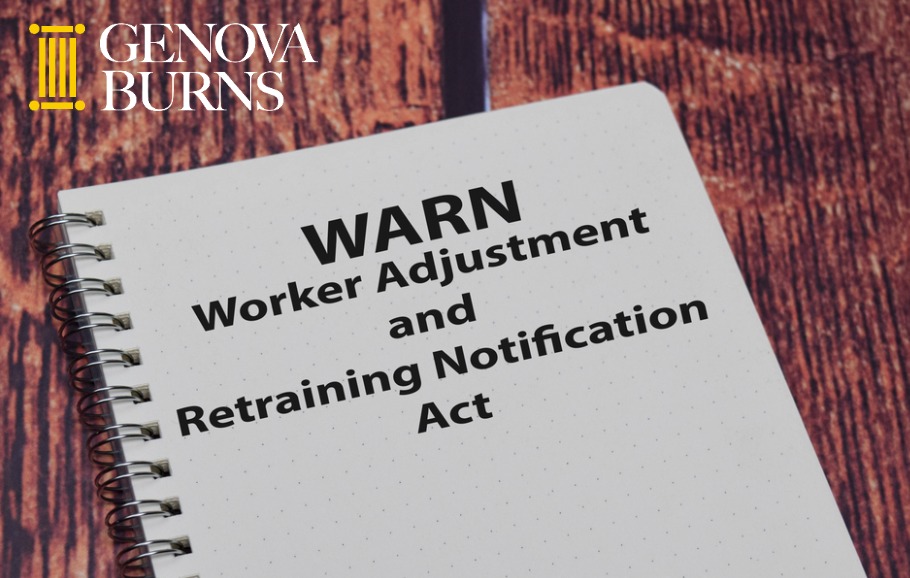New York Employers Facing Mass Layoffs And Closures Must Comply With New Requirements Under The New York Worker Adjustment and Retraining Act
July 7, 2023 | By: Brigette N. Eagan, Esq., Jessica B. Kim, Esq.
New York’s Worker Adjustment and Retraining Act (the NY WARN Act) requires New York employers with 50 or more employees to provide 90 days advance notice to those employees impacted by a mass layoff or business closure. New York State recently amended its WARN Act to provide greater employee protections. The key changes to the law follow:
- For purposes of determining if the employer meets the 50 employee headcount to trigger the NY WARN Act, the amendments expand the definition of employees to include remote workers.
- The amendments clarify that temporary layoffs (those under six consecutive months with a planned recall of employees) do not trigger the NY WARN Act notice requirements, while permanent layoffs (layoffs lasting more than a consecutive six month period) are covered.
- The amendments impose new requirements on employers purchasing a business (referred to as purchasing employer). Specifically, if as a condition of the purchase, the purchasing employer agrees to the re-employment of those employed by the seller’s business, and if that purchasing employer breaches that promise of re-employment, then the purchasing employer mut comply with the NY WARN Act notice requirements.
- The amendments include additional individuals and entities that are entitled to receive NY WARN Act notice. Previously, only affected employees and their union representatives, the Commissioner of Labor, and the chief elected local government official where the layoff or closing occurred received notice under the NY WARN Act. The amendments now add to this list and require notice to the local school district(s) and local emergency services providers (police, firefighting, emergency medical or ambulance services).
- Electronic notice to the Commissioner of Labor is now required. This notice must include for each affected employee, whether that employee is paid hourly, salary, or by commission, if the employee works full or part-time, and the employer’s total number of full-time and part time employees both in NY and at the impacted work site.
- If an employer cannot comply with the 90-day notice requirement of the mass layoff or closure, then the employer can apply for an exception approved by the Commissioner of Labor. All requests for an exception must contain documents illustrating and justifying the need for an exception to the notice requirements.
- The “not reasonably foreseeable” exception to the 90-day notice requirement now includes public health emergencies that result in a sudden and unexpected closure and terrorist attacks that directly affect operations.
BOTTOM LINE
Layoffs in New York like New Jersey remain cumbersome and expensive for employers. For guidance on mass layoffs or business closures in New York and employer obligations regarding same, please contact Harris S. Freier, Esq., Partner in the firm’s Employment Law & Litigation Practice Group via email here or 973-533-0777.
Tags: Genova Burns LLC • Harris S. Freier • Brigette N. Eagan • Jessica B. Kim • WARN • WARN Act • Employment Law & Litigation • New York



